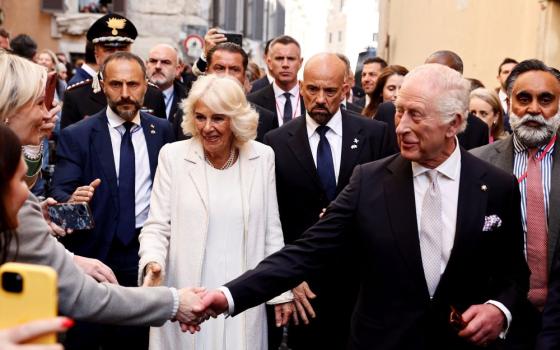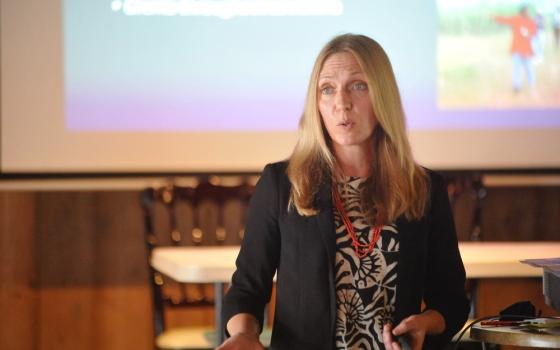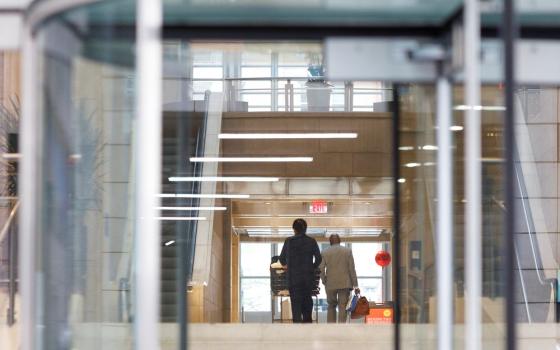BEIRUT -- Church bells rang, horns blasted and firecrackers echoed throughout Lebanon as it was announced that Bishop Bechara Rai of Jbeil, Lebanon, had been elected the new patriarch of the Maronite Catholic Church.
Patriarch Rai, 71, known for his courage to speak the truth, is seen as someone who can unite Maronite Catholics, who have been divided among political party lines.
The patriarch's election was announced March 15. Elections began March 11, after the Maronite synod spent two days in spiritual retreat and reflection. He replaces Cardinal Nasrallah P. Sfeir, 90, who retired because of age.
Father Joseph Mouawad, vicar general of Jbeil, predicted Patriarch Rai would unite Maronite Catholics and begin a pastoral renewal of the church.
"I think his first mission will be to confirm us in our faith here in Lebanon and, as head of the church, he will try to unite Christians, the different parties, and to consolidate the communion among the Maronites," Father Mouawad said.
"He has a deep spirituality, and he is very sociable and open to the others, and he has great courage. He says the truth even if someone doesn't want to listen to it," Father Mouawad said.
"I think on a national level in Lebanon, he will work to conserve this country to be a country of conviviality of all religions -- between Christian and Muslims," the priest added.
Of Lebanon's population of nearly 4 million, approximately 33 percent are Christian. Of the approximately 5.5 million Maronite Catholics worldwide, approximately 1 million live in Lebanon.
Syrian Catholic Patriarch Ignatius Youssef III Younan called the new patriarch "a good friend, an outstanding leader and well-gifted bishop."
"His intense spirituality, solid formation and openness of heart will be, God willing, a tremendous asset to reunite all Catholic Maronites in Lebanon, in the Middle Eastern countries and in the church," said Patriarch Younan.
Maronite Father Joseph Mouannes, secretary of the communications commission for Catholic bishops of the Middle East, called the election "really the choice of the Holy Spirit. And a great choice."
"He has done a lot for dialogue between Muslims and Christians. He was always the voice of truth, the voice of dignity, of freedom and respect," Father Mouannes said.
The new patriarch has served as president of the Lebanese bishops' communications committee and hosted a weekly program on Telelumiere, Lebanon's Christian television station. The program, "Boushra al Rahi," which means "Good News of the Shepherd," provided commentary and teaching on that Sunday's Gospel, and the patriarch encouraged listeners to live the Scriptures in a practical way.
Maronite Father Camille Mubarak, dean of the faculty of political science at Beirut's Sagesse University, said Patriarch Rai "can resolve many problems, politically and socially." He predicted the patriarch would "try to make peace between Christians first (the political parties), and then he will try to make peace among all the people of Lebanon."
The priest added, "We know when we go to his office, we can see a simple man, a kind man who can talk with anybody with great attention."
"He's a good teacher and a good diplomat," Father Mubarak said.
Mohammad Sammak, secretary-general of Lebanon's Christian-Muslim Committee for Dialogue, said Patriarch Rai has an ability to transcend divisions.
"I think he can play a very constructive role for the future of Christians in the Middle East," Sammak said.
Patriarch Rai "is known for being very courageous in expressing his point of view, and actually he speaks out what he believes in. That's why it is easy to deal with him, because he's honest with himself," he added.
At his request, Patriarch Rai will officially be installed on the feast of the Annunciation, March 25. Catholic patriarchs do not have their elections confirmed by the pope, but the new patriarch will request and receive spiritual communion from Pope Benedict XVI.
The 77th patriarch of the Maronite Catholic Church said "Communion and Charity" would be his motto.
He was born Feb. 25, 1940, in Himlaya, Lebanon. He was ordained a priest of the Maronite Order of the Blessed Virgin Mary Sept. 3, 1967, and was made a bishop in 1986. He has served as bishop of Jbeil since 1990.


